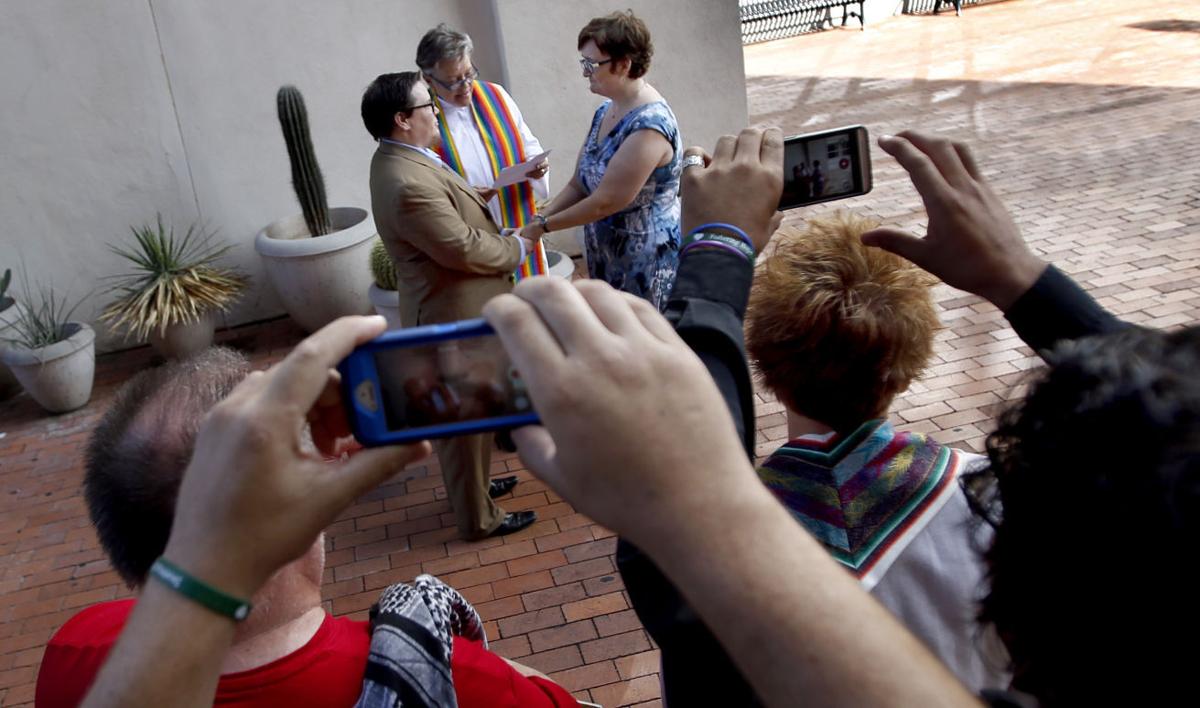It’s historic, said Abby Louise Jensen. Davin Franklin-Hicks called it a turning point.
When U.S. Attorney General Loretta E. Lynch announced the federal government’s intention to challenge North Carolina’s discriminatory law against transgender people, she made it clear about who would be on the right side — and the wrong side — of history.
“We see you,” Lynch said to Jensen and Franklin-Hicks and all other transgender individuals who have spent years battling for equal civil rights and to maintain their sexual identity and expression.
Lynch, who was born in North Carolina and cited Jim Crow laws and efforts to disarm desegregation laws in previous years, added: “We stand with you; and we will do everything we can to protect you going forward. Please know that history is on your side.”
Indeed, the march of history is on the side of a group of people who have been marginalized and, in many cases, live in fear and isolation.
“It’s absolutely mind-blowing. We’re not used to the government supporting us,” said Jensen, an appellate attorney for the Pima County public defender.
But there’s no celebrating yet — even if the Obama administration issued strong guidelines to public schools Friday to let transgender students use bathrooms that match their sexual identity. There is a strong politicized movement to make transgender people the chupacabra in this year’s presidential election cycle by upholding North Carolina’s new law and supporting other states banning transgender people equal access to public bathrooms.
North Carolina’s Republican governor has refused to budge, citing state rights and accusing the federal government of overreach. That’s the same limp response earlier Southern governors made when their states refused to integrate public colleges, schools, bathrooms and drinking fountains.
Franklin-Hicks said North Carolina’s House Bill 2 is a backlash to the success of same-sex marriage, and the increased visibility of transgender people in the media and public. Opponents to gay marriage lost and they have now targeted a new group, he added.
“It’s very easy to get people up in arms about it,” said Franklin-Hicks, community relations manager for La Frontera Arizona. He and Jensen are co-chairs of the Tucson Commission on Gay, Lesbian, Bisexual, and Transgender Issues.
The fight to keep people from peeing in the bathrooms of their choice is not new, said Jensen, a trans woman and a mother of three daughters, and Franklin-Hicks, a trans man who is married and adopted a son.
Three years ago, Republican state Sen. John Kavanagh of Fountain Hills sponsored legislation that would have made it a crime — including a six-month jail sentence — to use a restroom or shower that did not match a person’s birth gender. While there is no current move afoot in the Republican-controlled legislature, Arizona filed a friend of the court brief in support of North Carolina’s legal fight with the administration.
But guess what, folks?
“Trans people have always used the bathroom of their choice,” said Franklin-Hicks.
What is North Carolina going to do if its bathroom law is upheld? Station police officers to check people’s genitalia as they enter a public restroom?
“Unless they stop every person,” Jensen said, “it will lead to unconstitutional profiling based on sex.”
Really, this is not about who can and cannot use a public bathroom that conforms with their sexual identity, and it’s not about “safety.”
It’s about demonizing a group of people for political gain. It’s a political wedge issue pounding on the backs on transgender individuals who already face high rates of abuse, violence, depression and all the accompanying baggage.
We have seen this show before: blacks, undocumented immigrants, gays and lesbians, Muslims.
Just like the previous punitive legislative attacks on unprotected groups of people, the North Carolina bathroom law is based on fear and ignorance.
We can’t be fearful and exclusionary of family members, co-workers, neighbors or people we don’t know because of their sexual identity, Lynch — our first female, African-American attorney general — reminded us last week when she spoke truth to power:
“But this is not a time to act out of fear,” she said. “This is a time to summon our national virtues of inclusivity, diversity, compassion and open-mindedness.”





